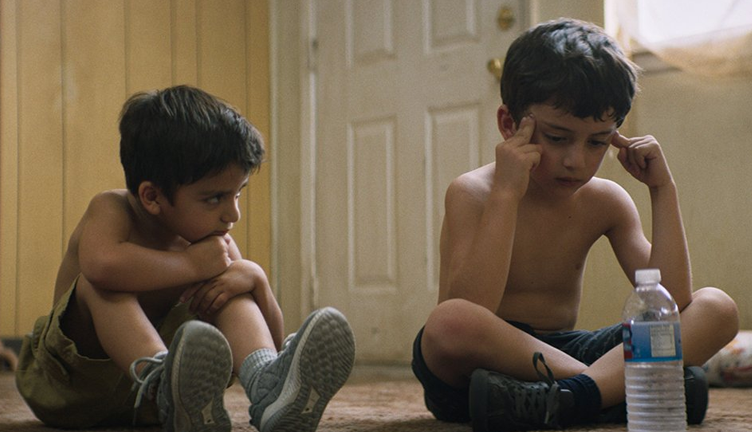LOS LOBOS: FILM REVIEW
When I initially read the synopsis for Samuel Kishi’s Los Lobos, I, like many others, immediately thought of Sean Baker’s The Florida Project. From a quick Google search, you’ll find Los Lobos described as such: “Immigrant siblings let their imaginations run wild as they dream of going to Disneyland one day.” And although it’s true that in both Los Lobos and The Florida Project, Disneyland becomes a symbolic — if not ever-present — representation of an unattainable version of the American Dream, Baker and Kishi craft this messaging entirely differently. Instead of highlighting the way that one’s imagination can be used as a shield, I think that Los Lobos’ efforts are more focused on exposing its fragility and the sorrowful realities that manage to peek through.
Samuel Kishi’s Los Lobos (“The Wolves”) centers on a mother named Lucía (Martha Lorena Reyes) and her two sons, Max (Maximiliano Nájar Márquez) and Leo (Leonardo Nájar Márquez), who have recently immigrated from Mexico to Albuquerque, New Mexico. The film opens with Lucía and her sons touring scrappy houses, in which vacancies were found on a disheveled bulletin board. Finally, they settle on a less-than-ideal motel apartment that is completely cluttered upon their arrival — half-eaten cans spill onto the kitchen counter, dismembered pieces of junk are piled into a corner, and the bathroom remains stained with yellow and brown markings. This is the only place they can afford, and they eventually make it their home.
Kishi knows that if he’s going to make a film that centers around only three characters (two of which are little kids), each must be distinctly strong. And they are impressively so; Max and Leo have no trouble living up to Lucía’s nickname for them — her baby wolves. For most of the day, Lucía is working relentlessly laborious jobs, and although she initially promises Max and Leo that she’ll be home by 7, as time goes on, 7 becomes 8, then 9, then 10. And with no school or babysitter, Max and Leo must stay in the apartment all day — entertained by nothing but each other and their imaginations. Post-quarantine, it’s a bit jarring to watch two little boys spend seemingly endless days locked in a bare-boned, dimly lit apartment.
But somehow, they manage. And even when tempted by the opportunity to engage with the outside world, they hold out for far longer than most boys their age would. As the days go on, Max and Leo turn a tiny, depressive space into their own world — wrestling playfully with each other and making drawings of themselves as ninja wolves, which the film actually animates from time to time to give the viewer insight into the breadth of their imagination. Lucía promises them that if they manage to learn certain English words and phrases, she will take them to Disneyland. So, over and over again they press “play” on the tape recorder she has recorded English lessons on, repeating sentences like, “I want to go Disney! One ticket please.”
Yet, despite Max and Leo’s ability to keep themselves occupied, they still experience constant longing for basic needs that are out of their reach. All they truly want is for their mom to come home, to know where their father is, and to go to Disneyland. Their feelings of foreignness can be seen most clearly during moments of rest, when day turns into night and their imaginations finally tire. Suddenly, their world is not as expansive as they make it out to be. They are not being transported to outer space and having grand adventures, but rather are sitting idly in a dark apartment that they cannot leave.
Similarly, Lucía’s tiredness becomes especially obvious during the few moments she can afford to rest. At the end of every long day, Lucía plops herself onto their makeshift bed (blankets on the ground), stretching her legs and massaging her aching muscles. When she looks into the mirror, she can barely muster a smile, and even when she does, she can hardly recognize the person staring back.
Kishi wants to make Los Lobos feel as real as possible, and he does so by marrying elements of fiction, documentary, and animation. Although it might feel counterintuitive for Kishi to combine varying storytelling mediums in order to achieve this sense of truth, it surprisingly works. He engages with each medium through an intimate and empathetic lens, seamlessly painting a full picture of an immigrant community and the individuals that exist within it — including the little wolves.




